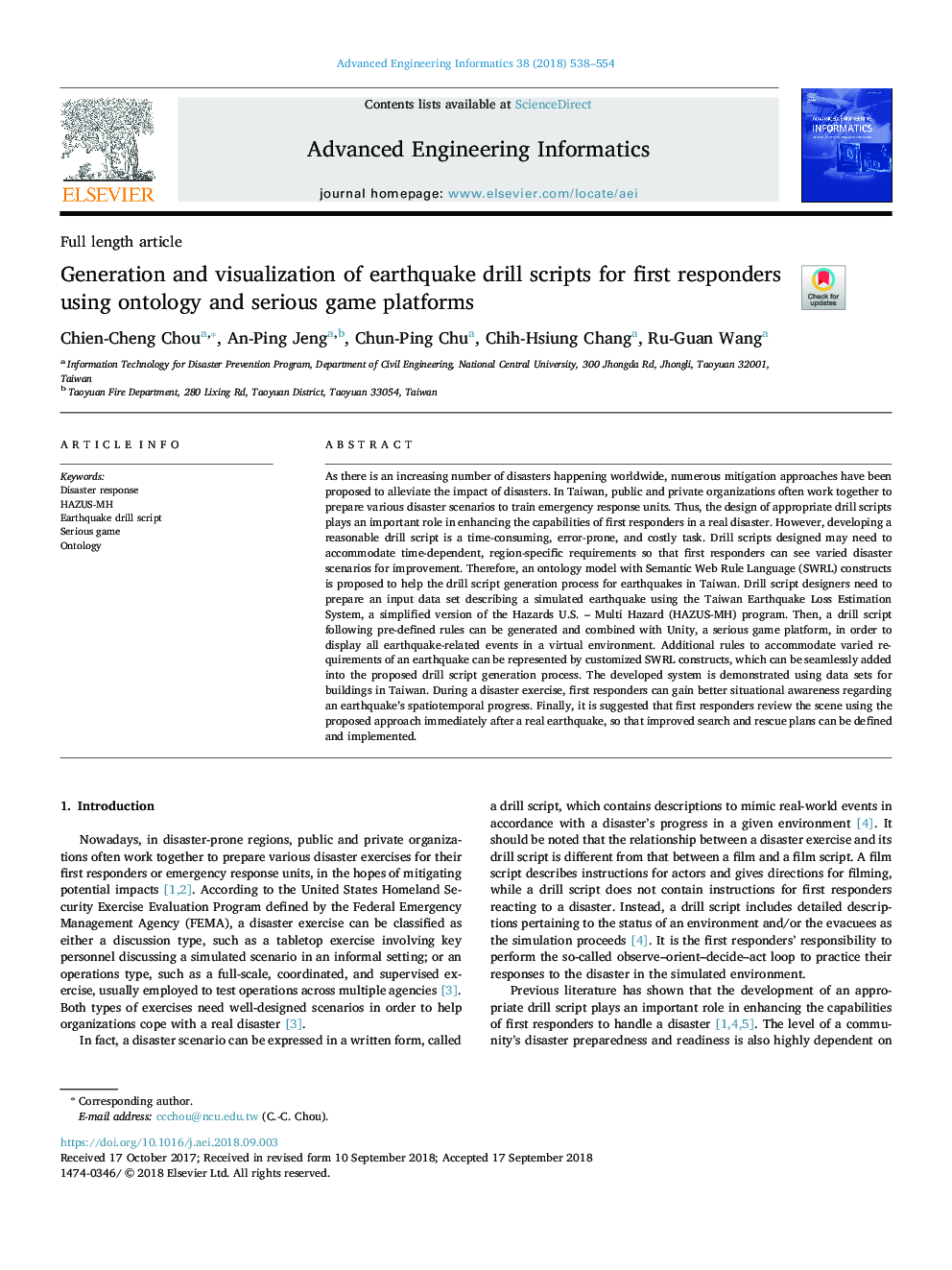| Article ID | Journal | Published Year | Pages | File Type |
|---|---|---|---|---|
| 11000828 | Advanced Engineering Informatics | 2018 | 17 Pages |
Abstract
As there is an increasing number of disasters happening worldwide, numerous mitigation approaches have been proposed to alleviate the impact of disasters. In Taiwan, public and private organizations often work together to prepare various disaster scenarios to train emergency response units. Thus, the design of appropriate drill scripts plays an important role in enhancing the capabilities of first responders in a real disaster. However, developing a reasonable drill script is a time-consuming, error-prone, and costly task. Drill scripts designed may need to accommodate time-dependent, region-specific requirements so that first responders can see varied disaster scenarios for improvement. Therefore, an ontology model with Semantic Web Rule Language (SWRL) constructs is proposed to help the drill script generation process for earthquakes in Taiwan. Drill script designers need to prepare an input data set describing a simulated earthquake using the Taiwan Earthquake Loss Estimation System, a simplified version of the Hazards U.S. - Multi Hazard (HAZUS-MH) program. Then, a drill script following pre-defined rules can be generated and combined with Unity, a serious game platform, in order to display all earthquake-related events in a virtual environment. Additional rules to accommodate varied requirements of an earthquake can be represented by customized SWRL constructs, which can be seamlessly added into the proposed drill script generation process. The developed system is demonstrated using data sets for buildings in Taiwan. During a disaster exercise, first responders can gain better situational awareness regarding an earthquake's spatiotemporal progress. Finally, it is suggested that first responders review the scene using the proposed approach immediately after a real earthquake, so that improved search and rescue plans can be defined and implemented.
Related Topics
Physical Sciences and Engineering
Computer Science
Artificial Intelligence
Authors
Chien-Cheng Chou, An-Ping Jeng, Chun-Ping Chu, Chih-Hsiung Chang, Ru-Guan Wang,
